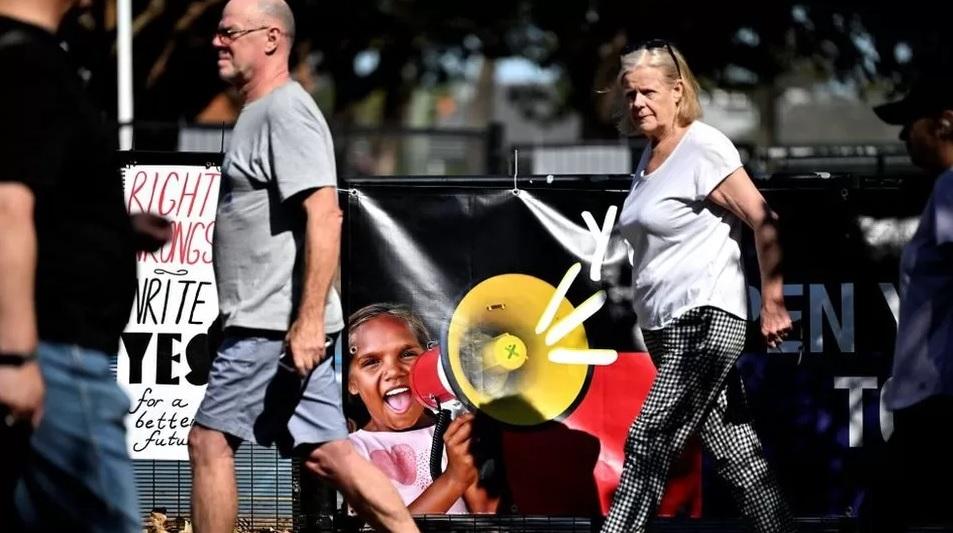Reply To:
Name - Reply Comment

Australia has overwhelmingly rejected a plan to give greater rights to Indigenous people in a referendum.
All six states voted no to a proposal to change the constitution to recognise Indigenous citizens and create an advisory body to the government.
Prime Minister Anthony Albanese said defeat was hard: "When you aim high, sometimes you fall short. We understand and respect that we have."
Opposition leader Peter Dutton said the result was "good for our country".
The referendum, dubbed "The Voice", was Australia's first in more than a quarter of a century. With almost 70% of the vote counted, the "No" vote led "Yes" 60% to 40%.
Its rejection followed a fraught and often ill-tempered campaign.
Supporters said that entrenching the Indigenous peoples into the constitution would unite Australia and usher in a new era.
No leaders said that the idea was divisive, would create special "classes" of citizens where some were more equal than others, and the new advisory body would slow government decision-making.
They were criticised over their appeal to undecided voters with a "Don't know? Vote no" message, and accused of running a campaign based on misinformation about the effects of the plan.
The result leaves Mr Albanese searching for a way forward with his vision for the country, and a resurgent opposition keen to capitalise on its victory.
Addressing the nation, the prime minister said he respected the vote and "the democratic process that has delivered it".
"This moment of disagreement does not define us, and it will not divide us, we are not Yes voters or No voters, we are all Australians. And it is as Australians together, that we must take our country beyond this debate, without forgetting why we had it in the first place.
"Too often in the life of our nation, the disadvantage confronting Aboriginal and Torres Strait Islander people has been relegated to the margins, this referendum and my government has put it right at the centre."
Mr Dutton said after the result that Australia "did not need to have" such a vote. "What we've seen tonight is Australians in their millions reject the prime minister's divisive referendum."
Leading No advocate and Bundjalung man Warren Mundine said: "This is a referendum that we should have never had had because it was built on the lie that Aboriginal people do not have a voice."
For some in the Yes camp, the devastation was visible.
"Our Indigenous leadership put themselves out there for this... we have seen a disgusting No campaign that has been dishonest, that has lied to the Australian people," Yes advocate Thomas Mayo told the ABC.
"I'm not blaming the Australian people at all, but who I do blame are those who lied to them," the Kaurareg Aboriginal and Kalkalgal, Erubamle Torres Strait Islander man added.
The Voice to Parliament was proposed in the Uluru Statement from the Heart, a 2017 document crafted by Indigenous leaders that set out a roadmap for reconciliation with wider Australia.
Australia's Indigenous citizens - who make up 3.8% of the country's 26 million population - have inhabited the land for about 60,000 years but are not mentioned in the constitution. They are, by most socio-economic measures, the most disadvantaged people in the country.
The referendum marked the 45th time Australia has attempted to change its founding document - but only eight proposals have cleared. It was also the second time the issue of Indigenous recognition was put to a national vote - the last attempt was in 1999.
The Yes campaign said that the Voice could tackle "the entrenched inequality" their people still face. The No campaign saw it differently. (Courtesy BBC)